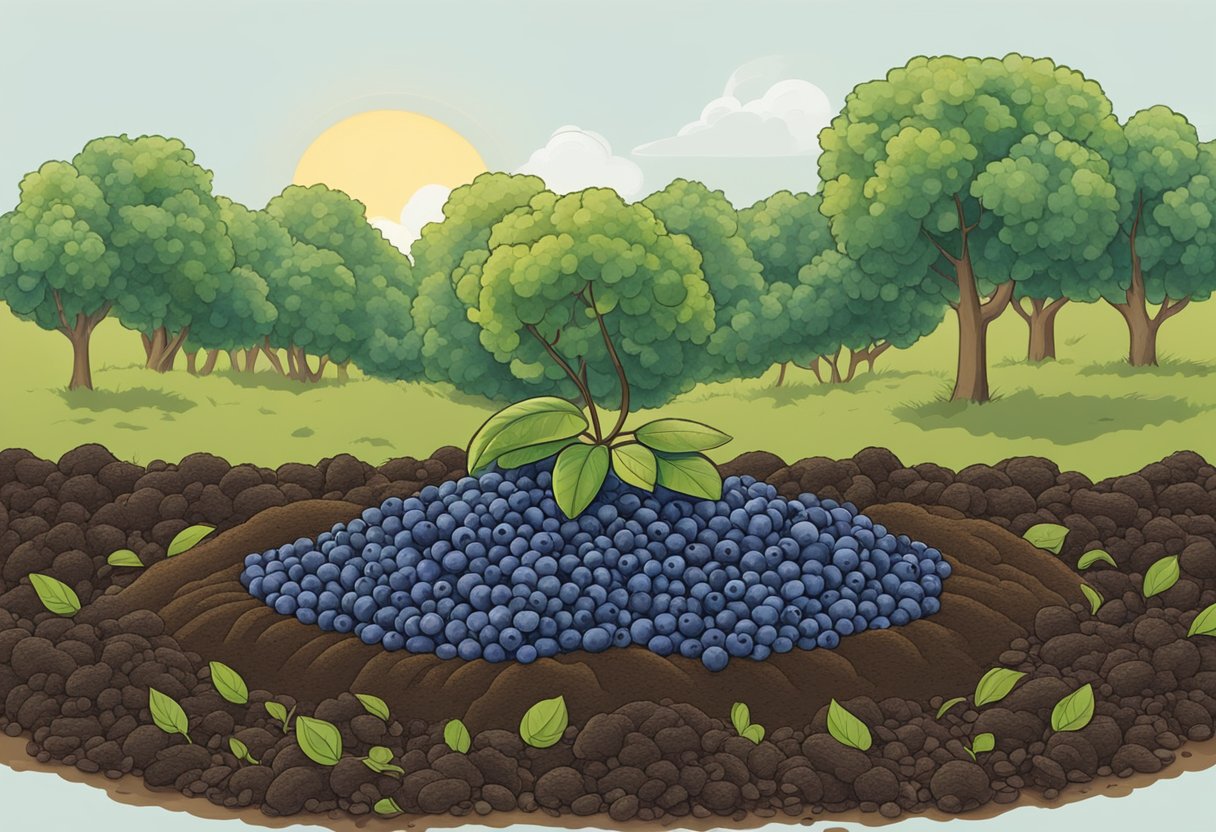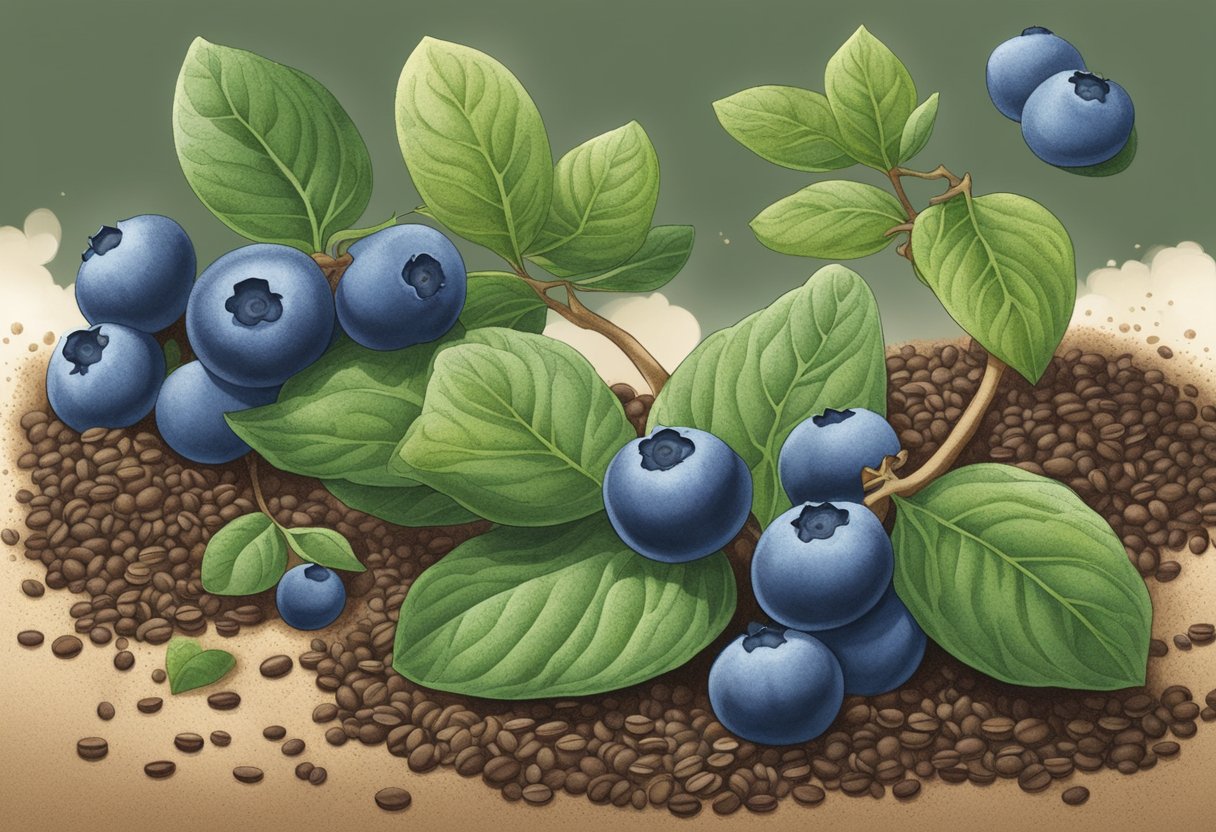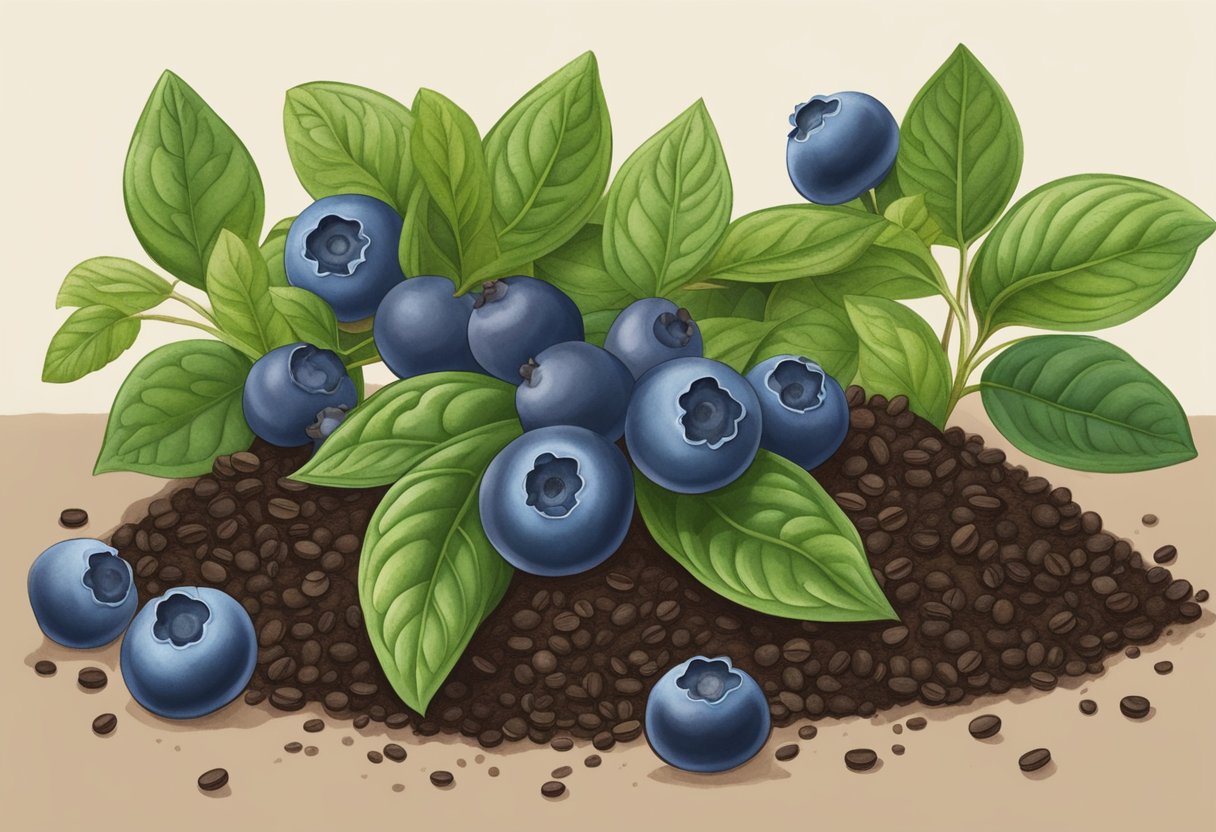1-800-982-4730
1-800-982-4730
Blueberry plants are a popular choice for gardeners, and many are curious about the best ways to care for them. One common question is whether blueberry plants like coffee grounds. The answer is yes, they do, but it's important to use them correctly to avoid harming the plants.

Coffee grounds are highly acidic, which makes them a good choice for blueberry plants, which prefer acidic soil. The grounds can help to lower the pH of the soil, making it more acidic and better suited to the needs of the plants. In addition, coffee grounds are rich in nitrogen, which is an essential nutrient for healthy plant growth.
However, it's important to use coffee grounds in moderation. Too much can actually harm the plants by increasing the acidity of the soil too much and damaging the roots. As with any fertilizer or soil amendment, it's important to follow the instructions carefully and not overdo it. With the right amount and application, coffee grounds can be a great way to help your blueberry plants thrive.

Blueberries are a popular fruit that is enjoyed by many people. They are full of essential nutrients and antioxidants, making them a healthy addition to any diet. However, growing blueberries can be a challenge, especially if you are not familiar with their soil needs.
Blueberry plants require acidic soil with a pH level between 4.0 and 5.5. They thrive in soil that is high in organic matter, low in phosphorus and calcium, and porous. The native soils in which they grow are typically acidic, such as those found in forest understories, bog areas, and pine barrens.
It is important to understand the soil structure and pH level of your garden before planting blueberries. If your soil is alkaline, you may need to lower the pH level to ensure that your blueberry plants receive the necessary acidity. Adding organic matter such as compost, pine needles, or oak leaves can help to increase soil acidity.
To determine the pH level of your soil, you can perform a soil test. This will help you to determine the soil acidity and the essential nutrients that your plants need. If your soil is not acidic enough, you can add sulfur or other acidifying agents to lower the pH level.
Many gardeners wonder if coffee grounds are a good fertilizer for blueberry plants. While coffee grounds are acidic, they should be used sparingly as they can alter the pH level of the soil if overused. A better option for fertilizing blueberry plants is to use a fertilizer specifically designed for acid-loving plants.
In summary, blueberry plants require acidic soil with a pH level between 4.0 and 5.5. It is important to understand the soil structure and pH level of your garden before planting blueberries. Adding organic matter and performing soil tests can help to ensure that your blueberry plants receive the necessary acidity and essential nutrients for optimal plant health.

Coffee grounds can be an effective fertilizer for blueberry bushes. They are rich in nitrogen, phosphorus, and potassium, which are essential nutrients for plant growth. Additionally, coffee grounds are an organic fertilizer, which means they are a slow-release fertilizer that will provide nutrients to the plants over time.
When using coffee grounds as a fertilizer, it is important to keep in mind that they are highly acidic. This makes them particularly beneficial for acid-loving plants like blueberries. However, if the soil is already too acidic, adding coffee grounds can make the problem worse. It is important to test the soil pH before adding coffee grounds to ensure that the pH is within the appropriate range for blueberry bushes.
Another way to use coffee grounds as a fertilizer is to add them to compost. Coffee grounds are a great source of organic matter, which can help improve soil structure and fertility. When added to compost, the nitrogen content in the coffee grounds will help speed up the decomposition process, resulting in a nutrient-rich compost that can be used to fertilize blueberry bushes.
Overall, coffee grounds can be a great addition to an organic fertilization plan for blueberry bushes. They are rich in essential nutrients and can help improve soil structure and fertility. However, it is important to use them in moderation and to test the soil pH before adding them to ensure that they are being used effectively.

To ensure the healthy growth and development of blueberry plants, there are several additional care practices that gardeners can implement. These practices include mulching, pest control, and proper care during the growing season.
Mulching is an important practice for blueberry plants as it helps to retain moisture and control weed growth. Gardeners can use a variety of materials for mulching, including straw, wood chips, or pine needles. It is important to apply a layer of mulch that is at least 2-3 inches thick around the base of the blueberry plant.
Pest control is another important aspect of caring for blueberry plants. Gardeners should monitor their plants for pests such as aphids, mites, and fruit flies. Beneficial insects such as ladybugs and lacewings can be introduced to the garden to help control pest populations.
Proper care during the growing season is essential for blueberry plants to produce healthy fruit. In early spring, gardeners should prune any dead or damaged branches and fertilize the plants with a balanced fertilizer. During the growing season, blueberry plants require consistent watering and regular applications of fertilizer.
Stunted growth and poor fruit production can be caused by a variety of factors, including poor soil quality and inadequate photosynthesis. Gardeners should ensure that their blueberry plants have a healthy root system and receive adequate sunlight to promote photosynthesis.
In conclusion, by implementing proper care practices such as mulching, pest control, and proper care during the growing season, gardeners can ensure the healthy growth and development of their blueberry plants.

While coffee grounds are a popular and affordable choice for fertilizing blueberry plants, there are other options available for those who prefer not to use coffee grounds. Here are some alternatives to consider:
Composting is an excellent way to create nutrient-rich soil for your blueberry plants. By composting kitchen scraps, yard waste, and other organic materials, you can create a healthy soil amendment that is rich in nitrogen, phosphorus, and potassium. Composting also helps to improve soil structure and promote the growth of beneficial microorganisms.
Pine needles are an excellent source of organic matter that can be used to acidify soil. They are rich in tannins, which can help to lower soil pH and provide essential nutrients like calcium, magnesium, and iron. Pine needles also break down slowly, which means they provide a steady release of nutrients over time.
If you prefer not to use regular coffee grounds, decaf coffee grounds are a good alternative. Decaf coffee grounds still contain some nutrients, but they are less acidic than regular coffee grounds. This means they are less likely to affect soil pH and are less likely to harm your blueberry plants.
Sawdust and grass clippings can be added to your compost pile to provide a source of carbon-rich material. Carbon materials help to balance the nitrogen-rich materials in your compost pile and promote the growth of beneficial microorganisms. Sawdust and grass clippings are also affordable and easy to obtain.
Bark and bone meal are excellent sources of secondary nutrients like calcium, magnesium, and sulfur. They also provide trace minerals like copper and aluminum that are important for plant growth. Bark and bone meal can be added to your soil to improve soil structure and promote nutrient uptake.
Before adding any fertilizers to your blueberry plants, it is important to test your soil. Soil testing can help you determine the pH of your soil and identify any nutrient deficiencies. By testing your soil, you can choose the best fertilizer for your blueberry plants and avoid over-fertilizing.
In conclusion, there are many alternatives to coffee grounds that can be used to fertilize blueberry plants. By choosing the right fertilizer and providing your plants with the nutrients they need, you can promote healthy growth and a bountiful harvest.